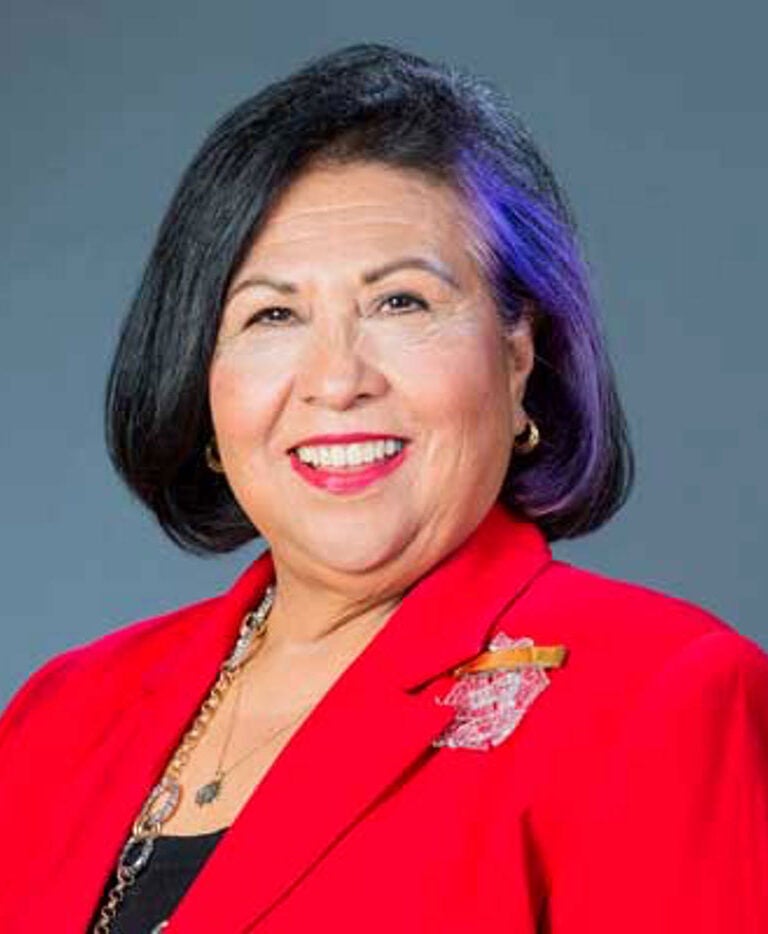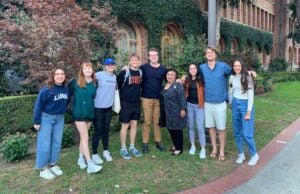
Fall 2021 Fellow
USC Center for the Political Future Tribute (1948 – 2023)
A proud daughter of a Mexican mother and a Mexican-American father, Gloria Molina represented the L.A.’s First District on the Los Angeles County Board of Supervisors for more than two decades. Growing up in the Pico Rivera area, she learned that eliminating unfair barriers is the best way to ensure equal opportunity. From founding East L.A.’s Comisión Femeníl Mexicana Nacional to serving in the Carter White House, that idea has driven her lifelong commitment to public service.
In 1982, Molina made history as the first Chicana elected to the California State Assembly. In this role, she combined passionate advocacy with formidable political skill to strengthen communities in the 56th Assembly District and statewide. In 1991, she became the first Latina to join the Los Angeles County Board of Supervisors, where she was known as a fiscal watchdog committed to good government reforms, maintenance of the county’s public health care delivery system, and quality-of-life issues—particularly for the one million county residents residing in the unincorporated areas.
Named as one of the Democratic Party’s “10 Rising Stars” by TIME magazine in 1996, Molina served as one of four Vice Chairs of the Democratic National Committee through 2004. During the 2000 Presidential Election, Molina was one of 15 top women leaders nationwide to be named as a possible Vice-Presidential candidate by the White House Project, a non-profit, non-partisan group dedicated to raising awareness of women’s leadership in American politics.
Ms. Molina died of cancer at her LA home on May 14, 2023. CPF created a scholarship in her honor to provide financial support to USC students who have unpaid internships in Los Angeles or California politics.
Course: Holding our Leaders Accountable: Promoting Ethics in Local Government
“You can’t trust politicians.” We hear it everyday and regrettably witness it on a regular basis. This course explored ethics, its regulations, it’s impact and our everyday responsibility. It is everybody’s business. The goal of ethics in local governments is to further the public trust. A democratic government cannot thrive when we lack trust in those who govern.
Rules, regulations, accountability, transparency and conflicts of interest were examined and discussed in a pragmatic approach to ethics. Understanding our individual duty and the impact on our local environment was explored through lectures and special speakers.
Fall 2021 Semester Recap

Brigitte Rodriguez, a junior majoring in Contemporary Latino/Latin American Studies and Political Science, said this about her experience in Gloria’s course:
“I’ve been fortunate enough to be registered for POSC 410. Once a week, I get to sit down with Gloria Molina, one of the Fall 2021 Fellows, and just chat about ethics and policy making. It’s really great. Obviously there’s also a lot of events that are held by the Center for the Political Future; seeing the Fellows at open houses, Pizza and Politics, just talking to them about their career paths. I think all of those are really great ways to engage. My favorite part of being in Gloria’s class was definitely the guest speakers that she brought in. They were all people that she knew, so it was really fun seeing her interact with them. She brought in a Los Angeles Times reporter, her former chief of staff, someone who used to work in the California state government; they all spoke to their different areas of expertise. She was acquainted with all of these people, so they had really fun banter and asked each other tough questions and constantly encourage us to ask them really difficult questions. So that honestly was definitely my favorite part, getting to hear not just from Gloria Molina, but obviously everyone else who are experts in their respective fields.”
See what Fall 2021 Fellow Gloria Molina said about her experience at USC’s Center for the Political Future in this video highlight.